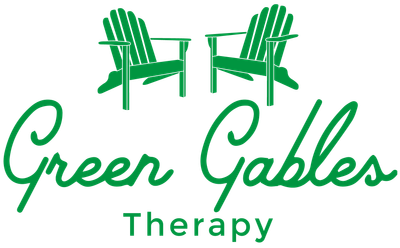What is Counselling and What To Expect

What Is Counselling?
A professional counsellor is a highly trained individual who is able to use a different range of counselling approaches with their clients. The role of the counsellor is to enable the client to explore many aspects of their life and feelings by talking openly and freely. Talking in such a way is not always possible with family or friends who are likely to be emotionally involved and have opinions and biases that may be confusing and not helpful. The counsellor gives the client an opportunity to express difficult feelings such as anger, resentment, guilt, sadness and fear in a safe and confidential environment.
The ultimate aim of counselling is to enable the client to make their own choices, reach their own decisions and to improve their own way of being.
Counselling Is Not
Giving advice.
Judgemental.
Attempting to fix your problems.
Forcing you to talk about things you do not feel comfortable with or ready for.
Expecting or encouraging you to behave in a way in which I may have behaved when confronted with a similar problem.
Getting emotionally involved with you as a client.
Looking at your problems from my own perspective, based on my own value system.
The Benefits of Counselling
Seeing your thoughts from a different more positive perspective.
Time to allow you to confront your feelings.
Feel less alone with your problems.
Find it easier to cope in every day life.
Can improve your physical well being.
How I Work
I work in a Person Centred way but also integrate other tools into our work together depending on your individual needs.
Person-Centred Counselling
Humanistic counsellors aim to help clients to explore their own thoughts and feelings and to work out their own solutions to their problems. Carl Rogers (1902-1987) American psychologist, developed Person Centred Counselling and is one of the most commonly used humanistic therapies which encourages the client to concentrate on how they feel in the here and now.
Person-centred therapy at a glance -
The initial face to face assessment is to allow us the space and time for any questions or concerns you may have. This is also an opportunity to see if you would be happy for us to work together and if you feel counselling is for you.
The Purpose of the Initial Assessment -
The purpose of the initial assessment is to gather information and to form a contract between us. It is about us both working together to explore your therapy requirements and how you feel I can help in a safe and confidential environment.
It will include-
I work on a one to one basis and everything we discuss is confidential. There are exceptions to this policy as follows: -
Clients Under 16 Years Old
Every client, regardless of their age must feel comfortable and confident that they have a safe place to share what is going on for them without the fear of it being repeated outside of the therapy room.
I provide the opportunity for parents/caregivers/an appropriate responsible adult to be present for the first 10-15 minutes of the Initial Assessment to go through any questions they may have and to assist in ensuring everyone is comfortable and understands the process. If at any point I have concerns of the wellbeing of the young person, I would not hesitate to break this confidentiality but would do so by informing the client and where possible, have the client present. Clients safety is my number one priority.
Qualifications
PGDip Psychotherapeutic Counselling (CPCAB)
Diploma in Humanistic Integrative Counselling (CPCAB)
Certificate in Counselling Studies (CPCAB)
Certificate in Counselling Skills (CPCAB)
Certificate in Understanding Autism (NCFE)
Certificate in Understanding Behaviour that Challenges (CACHE)
Certificate in understanding Specific Learning Difficulties (CACHE)
Mental Health First Aider (MHFA England)
BACP
The British Association for Counselling and Psychotherapy (BACP) is the professional association for members of the counselling professions in the UK.
Being a registered member of the BACP demonstrates that the therapist has met or exceeded their recommended minimum quality standards. These standards cover training, supervision, continuing professional development and a contractual commitment to their Ethical Framework for the Counselling Professions.
Choosing a practitioner who is a registered member of the BACP offers a client the assurance that their therapist meets the standards of proficiency and ethical practice they would expect.
Registered Member 348888
A professional counsellor is a highly trained individual who is able to use a different range of counselling approaches with their clients. The role of the counsellor is to enable the client to explore many aspects of their life and feelings by talking openly and freely. Talking in such a way is not always possible with family or friends who are likely to be emotionally involved and have opinions and biases that may be confusing and not helpful. The counsellor gives the client an opportunity to express difficult feelings such as anger, resentment, guilt, sadness and fear in a safe and confidential environment.
The ultimate aim of counselling is to enable the client to make their own choices, reach their own decisions and to improve their own way of being.
Counselling Is Not
Giving advice.
Judgemental.
Attempting to fix your problems.
Forcing you to talk about things you do not feel comfortable with or ready for.
Expecting or encouraging you to behave in a way in which I may have behaved when confronted with a similar problem.
Getting emotionally involved with you as a client.
Looking at your problems from my own perspective, based on my own value system.
The Benefits of Counselling
Seeing your thoughts from a different more positive perspective.
Time to allow you to confront your feelings.
Feel less alone with your problems.
Find it easier to cope in every day life.
Can improve your physical well being.
How I Work
I work in a Person Centred way but also integrate other tools into our work together depending on your individual needs.
Person-Centred Counselling
Humanistic counsellors aim to help clients to explore their own thoughts and feelings and to work out their own solutions to their problems. Carl Rogers (1902-1987) American psychologist, developed Person Centred Counselling and is one of the most commonly used humanistic therapies which encourages the client to concentrate on how they feel in the here and now.
Person-centred therapy at a glance -
- The belief that the client is the best expert on their own thoughts, feelings, experiences and problems and is therefore the most capable of finding the appropriate solutions.
- Empathy (the ability to understand and share the feelings of another), Unconditional Positive Regard (accepting and respecting others as they are without judgement or evaluation) and Congruence (genuineness) are at the core of person centred therapy
- It is non directive and works with what the client chooses to bring as opposed to the counsellor directing the sessions.
The initial face to face assessment is to allow us the space and time for any questions or concerns you may have. This is also an opportunity to see if you would be happy for us to work together and if you feel counselling is for you.
The Purpose of the Initial Assessment -
The purpose of the initial assessment is to gather information and to form a contract between us. It is about us both working together to explore your therapy requirements and how you feel I can help in a safe and confidential environment.
It will include-
- Discussing the practicalities of counselling by looking at times, cancellations, fees, confidentiality (and its limits).
- It will allow me to gain a better understanding of your presenting problems and difficulties so we can discuss together your goals of counselling and areas to be worked on in future sessions.
- Please be prepared to answer a few basic questions around any presenting issues and expectations of counselling as well as any medical history/medication that may be relevant to our work together.
I work on a one to one basis and everything we discuss is confidential. There are exceptions to this policy as follows: -
- If I feel that you are in immediate danger of serious harm to yourself or others
- The Children’s Act –Where a child under 16 years old could be at risk of harm
- The Terrorism Act
Clients Under 16 Years Old
Every client, regardless of their age must feel comfortable and confident that they have a safe place to share what is going on for them without the fear of it being repeated outside of the therapy room.
I provide the opportunity for parents/caregivers/an appropriate responsible adult to be present for the first 10-15 minutes of the Initial Assessment to go through any questions they may have and to assist in ensuring everyone is comfortable and understands the process. If at any point I have concerns of the wellbeing of the young person, I would not hesitate to break this confidentiality but would do so by informing the client and where possible, have the client present. Clients safety is my number one priority.
Qualifications
PGDip Psychotherapeutic Counselling (CPCAB)
Diploma in Humanistic Integrative Counselling (CPCAB)
Certificate in Counselling Studies (CPCAB)
Certificate in Counselling Skills (CPCAB)
Certificate in Understanding Autism (NCFE)
Certificate in Understanding Behaviour that Challenges (CACHE)
Certificate in understanding Specific Learning Difficulties (CACHE)
Mental Health First Aider (MHFA England)
BACP
The British Association for Counselling and Psychotherapy (BACP) is the professional association for members of the counselling professions in the UK.
Being a registered member of the BACP demonstrates that the therapist has met or exceeded their recommended minimum quality standards. These standards cover training, supervision, continuing professional development and a contractual commitment to their Ethical Framework for the Counselling Professions.
Choosing a practitioner who is a registered member of the BACP offers a client the assurance that their therapist meets the standards of proficiency and ethical practice they would expect.
Registered Member 348888


